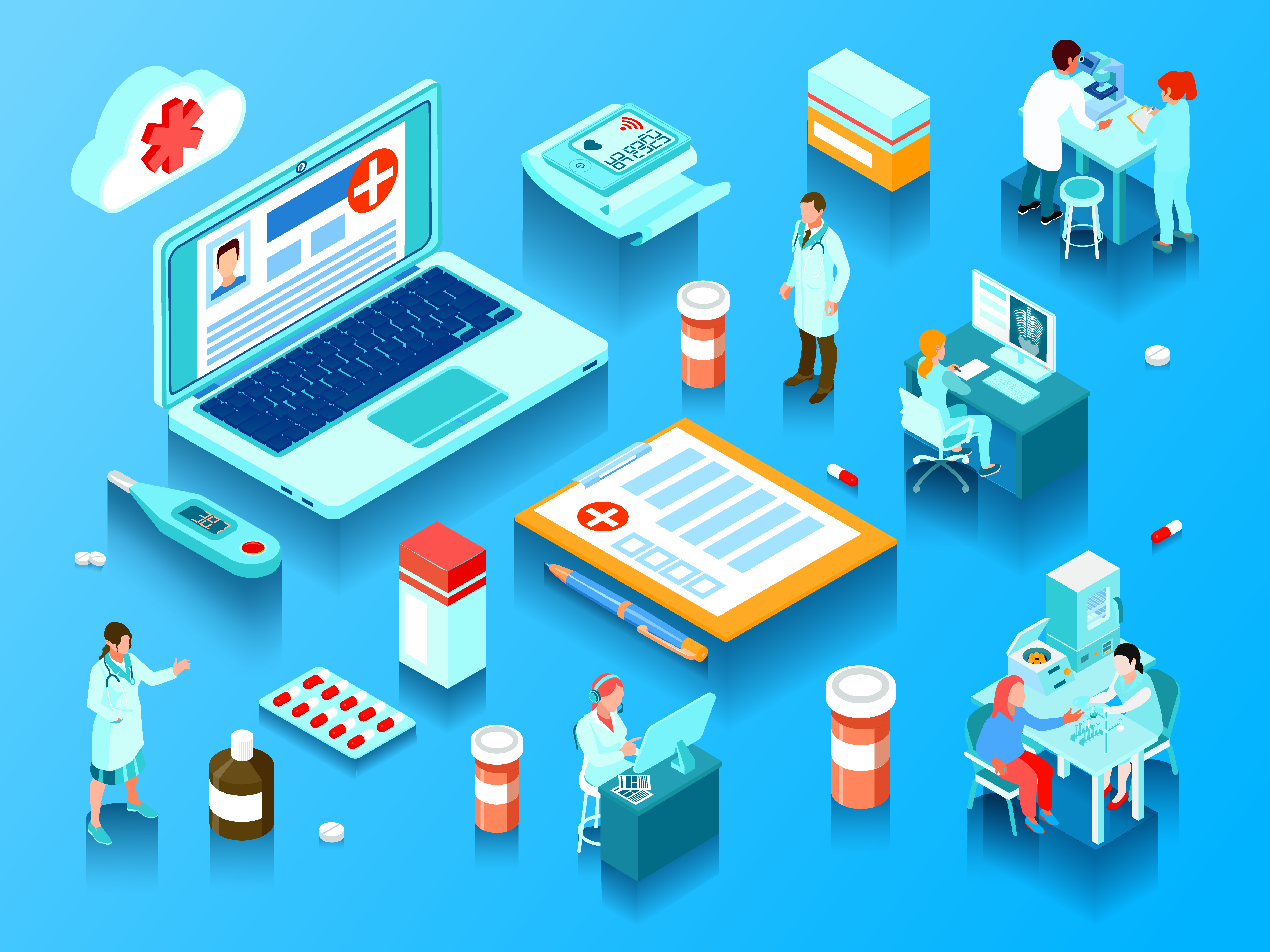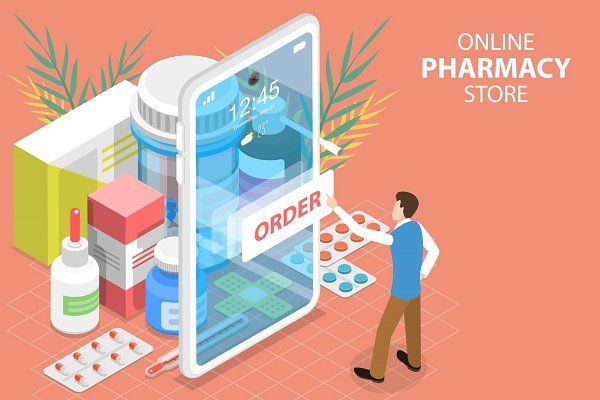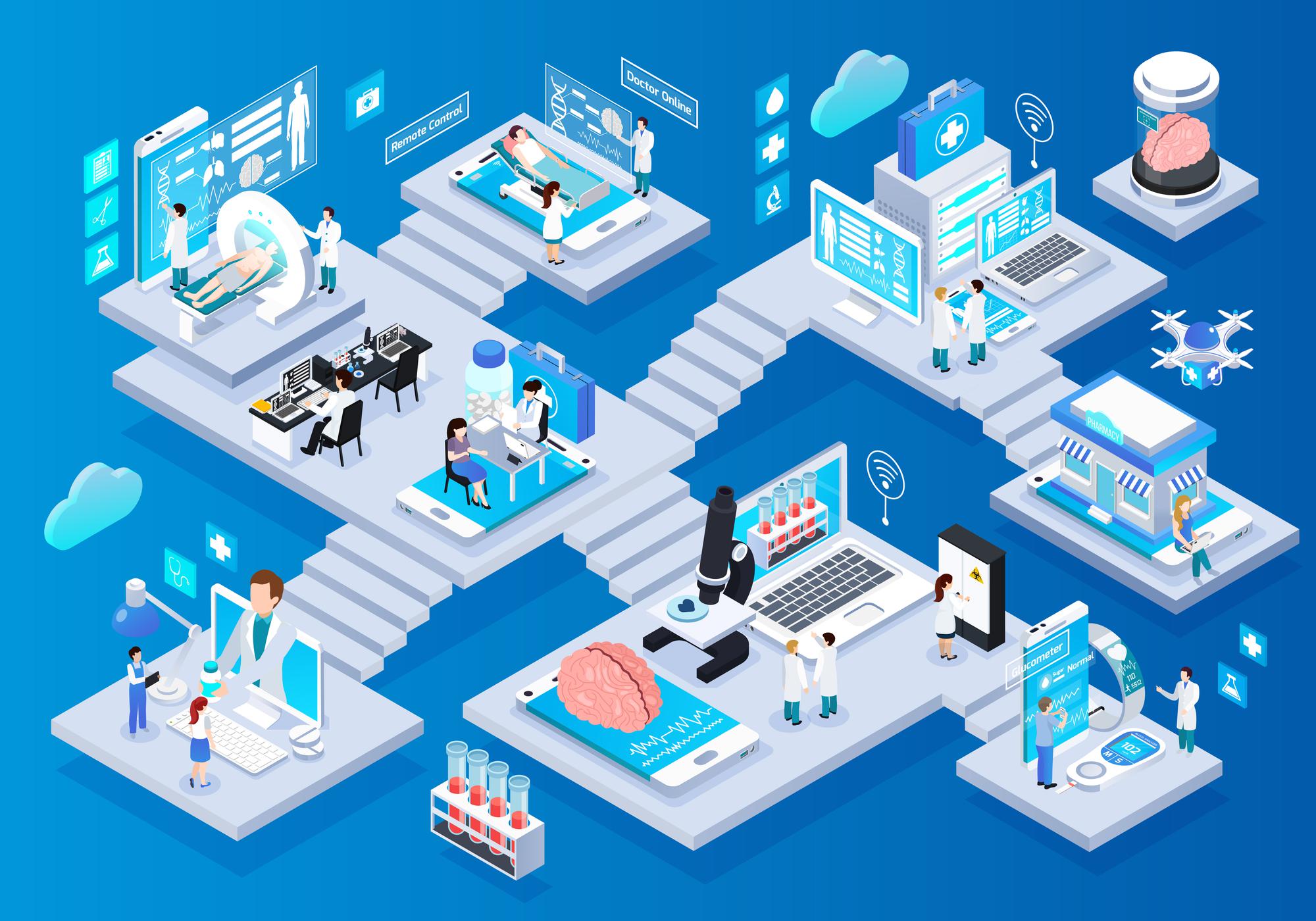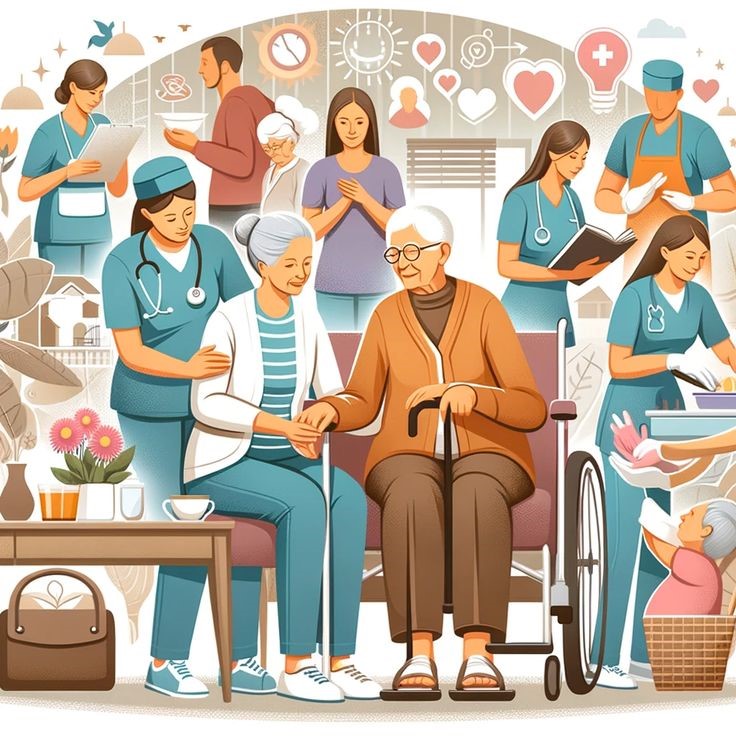
The Benefits of a Comprehensive Hospital Information System
The integration of a robust Hospital Information System (HIS) has become indispensable. This digital revolution, encompassing clinical software, doctor software, and various other components like EHR (Electronic Health Records) and EMR (Electronic Medical Records), is redefining the operational and clinical efficiency of healthcare institutions. Let's delve into the myriad advantages these systems offer, underscoring their pivotal role in enhancing hospital management and patient care.
Streamlining Administrative Processes with HIS Hospital Information Systems Automating Hospital Management for Enhanced Efficiency.
The implementation of Hospital Information Systems (HIS) marks a significant leap in healthcare management, offering a myriad of advantages that streamline operations and enhance patient care. By integrating sophisticated hospital accounts software and hospital billing software, HIS alleviates administrative burdens, automating tasks for improved efficiency. This comprehensive system encapsulates everything from patient registration to discharge, ensuring seamless and efficient processes.
Coordinating Care with Integrated Clinical Systems Leveraging HIS for Real-Time Patient Data Access
HIS not only facilitates the coordination of care through the integration of clinical and doctor software but also provides healthcare professionals with immediate access to patient data, crucial for informed decision-making. This integration is pivotal in elevating hospital performance and surpassing quality indicators.
Boosting Hospital Marketing and Outreach Leveraging HIS for Superior Patient Experience and Engagement
Moreover, HIS significantly boosts hospital marketing efforts. With functionalities like patient management software and queue management systems, hospitals can deliver an unparalleled patient experience, a vital differentiator in today's competitive healthcare sector. HIS also supports hospital promotions and community outreach, leveraging features to highlight services such as free medical camps.
Advancing Clinical Care with Specialized HIS Modules Optimizing Laboratory and Imaging Processes through HIS
Specialized modules like LIMS and PACS within HIS further advance clinical care standards. LIMS optimizes laboratory processes for precision and efficiency, while PACS revolutionizes medical imaging management, enhancing diagnostic capabilities.
Empowering Patients through HIS Enhancing Patient Engagement and Satisfaction with HIS
Crucially, HIS fosters patient engagement by incorporating patient portals and Personal Health Records (PHR), empowering patients to actively participate in their healthcare journey, thereby improving satisfaction and outcomes.
Clinical and Doctor Software: A Closer Look
At the heart of any HIS are the clinical and doctor software components. These tools are designed to support healthcare providers in delivering patient-centered care. Clinical software offers a range of functionalities from diagnostic support to treatment planning, while doctor software provides a platform for managing patient appointments, medical histories, and treatment outcomes. Together, they ensure that healthcare providers have the necessary information at their fingertips, leading to informed decision-making and improved patient outcomes.
EHR: The Backbone of Integrated Healthcare Electronic Health Records (EHR): Centralizing Patient Data
Electronic Health Records (EHR) stand as the backbone of integrated healthcare systems, serving as centralized digital repositories for patient medical records. EHR systems transcend the limitations of traditional record-keeping by aggregating data from various healthcare providers, ensuring a holistic view of a patient's medical history. This comprehensive approach is instrumental in facilitating coordinated care, allowing healthcare professionals from different specialties to access and contribute to a unified patient record.
EMR: Enhancing Practice-Specific Care Electronic Medical Records (EMR): Streamlining Clinical Operations
Electronic Medical Records (EMR) are pivotal in enhancing the efficiency of clinical operations within individual healthcare practices. EMR systems focus on the medical history of patients, capturing detailed information about treatments, diagnoses, and patient interactions specific to a practice. This focus on practice-specific care allows clinicians to track patient progress over time, tailor treatments, and make informed decisions based on a patient's unique medical history.
EHR and EMR: Driving Continuity in Healthcare Ensuring Continuity Across Healthcare Settings with HER
The versatility of Electronic Health Records (EHR) plays a crucial role in ensuring continuity of care across diverse healthcare settings. By offering a more comprehensive view that encompasses data from multiple sources, EHR systems ensure that every healthcare provider involved in a patient's care has access to the same up-to-date information. This seamless flow of data is vital for maintaining continuity, especially for patients who receive care from multiple specialists or at different healthcare facilities.
The Synergy of EHR and EMR in HIS Integrating EHR and EMR into Hospital Information Systems
The integration of EHR and EMR into Hospital Information Systems (HIS) creates a synergistic effect that enhances both patient care and hospital management. By combining the detailed practice-specific insights provided by EMR with the comprehensive, cross-provider perspective offered by EHR, HIS becomes a powerful tool for managing patient information. This integration ensures that healthcare providers have access to the most relevant and complete data, enabling better clinical decision-making and improving patient outcomes.
HMIS: Streamlining Hospital Operations Hospital Management Information Systems: A Comprehensive Approach
Hospital Management Information Systems (HMIS) serve as the cornerstone for enhancing the operational efficiency of healthcare institutions. By covering a broad spectrum of hospital operations, HMIS facilitates everything from patient management to resource allocation. This comprehensive approach ensures that all aspects of hospital administration, including scheduling, billing, and patient care coordination, are streamlined and efficient, contributing to the overall improvement of hospital performance and patient satisfaction.
LIMS: Optimizing Laboratory Processes Laboratory Information Management Systems: Precision and Efficiency
Laboratory Information Management Systems (LIMS) play a pivotal role in the precise and efficient management of laboratory processes. By specifically targeting the optimization of these processes, LIMS ensures the accuracy and efficiency of test processing and results dissemination. This focus on laboratory operations is crucial for maintaining the integrity of diagnostic data, which in turn supports informed clinical decision-making and enhances patient care outcomes.
The Synergy of HMIS and LIMS Integrating HMIS and LIMS for Enhanced Healthcare Delivery
The integration of Hospital Management Information Systems (HMIS) and Laboratory Information Management Systems (LIMS) brings about a synergistic enhancement in the operational efficiency of healthcare institutions. HMIS's broad coverage of hospital operations complements the specialized focus of LIMS on laboratory processes. Together, they ensure that both administrative and clinical aspects of healthcare delivery are optimized. This integration facilitates seamless communication between different departments, reduces the potential for errors, and ensures that healthcare providers have timely access to critical diagnostic information, ultimately leading to improved patient care and hospital management.
PACS: Revolutionizing Medical Imaging Enhancing Diagnostics with Picture Archiving and Communication Systems
Picture Archiving and Communication Systems (PACS) stand at the forefront of revolutionizing medical imaging, offering a comprehensive solution for the storage, retrieval, and sharing of medical images. This technological advancement significantly enhances diagnostic capabilities by providing healthcare professionals with easy access to high-quality images. The ability to swiftly share these images among specialists fosters seamless collaboration, ensuring that patients receive the most informed and timely care possible.
Queue Management: Improving Patient Flow Optimizing Patient Experience with Efficient Queue Management
Complementing the advancements brought by PACS, queue management systems play a crucial role in streamlining clinical workflows by significantly improving patient flow within healthcare facilities. By efficiently managing patient queues, these systems reduce waiting times and minimize congestion, contributing to a smoother and more positive patient experience. The implementation of queue management systems is essential for maintaining an organized and patient-friendly healthcare environment.
Integrating PACS and Queue Management Streamlining Clinical Workflows for Enhanced Care Delivery
The integration of Picture Archiving and Communication Systems (PACS) and queue management systems brings about a significant improvement in streamlining clinical workflows. PACS enhances the diagnostic process with its advanced imaging capabilities, while queue management systems ensure that patient flow is optimized, reducing wait times and enhancing overall patient satisfaction. Together, these technologies contribute to a more efficient and effective healthcare delivery system, where clinical operations are seamless, and patient care is prioritized.
PHR: Empowering Patients with Personal Health Records Personal Health Records: A Tool for Patient Empowerment
Personal Health Records (PHR) stand as a testament to the empowerment of patients in managing their own health. This digital innovation allows individuals to take control of their health information, providing a platform to access, manage, and share their health data with ease. PHR fosters a greater level of patient engagement by encouraging proactive health management and facilitating informed discussions with healthcare providers. By putting health data directly in the hands of patients, PHR enhances the patient's role in their healthcare journey, leading to more personalized and effective care.
Hospital Accounts and Billing Software: Streamlining Financial Operations Optimizing Financial Management with Hospital Accounts Software
Hospital accounts software plays a crucial role in streamlining the financial operations of healthcare institutions. By automating accounting processes, this software ensures accurate and efficient management of financial transactions, from patient billing to payroll. The integration of hospital billing software further enhances this efficiency, providing a seamless solution for generating invoices, processing payments, and managing insurance claims. Together, these tools not only optimize financial workflows but also contribute to the overall financial health of the hospital.
Hospital Marketing: Enhancing Visibility and Patient Engagement Leveraging Hospital Software for Effective Marketing Strategies
Hospital marketing is an essential aspect of healthcare management, aiming to enhance the visibility of the hospital and engage with potential and existing patients. Modern hospital software includes features that support marketing efforts, such as patient relationship management, social media integration, and analytics. These tools enable hospitals to tailor their marketing strategies, reach a wider audience, and foster stronger connections with the community they serve.
Comprehensive Hospital Software: The Backbone of Healthcare Operations The Integral Role of Hospital Software in Healthcare Delivery
Comprehensive hospital software serves as the backbone of healthcare operations, integrating various aspects of hospital management into a cohesive system. From clinical workflows and patient care to administrative tasks and financial management, hospital software provides a unified platform that enhances efficiency and improves the quality of services offered. By incorporating modules for accounts, billing, marketing, and more, hospital software ensures that every facet of hospital operations is optimized, paving the way for a more streamlined, effective, and patient-centered healthcare delivery system.




